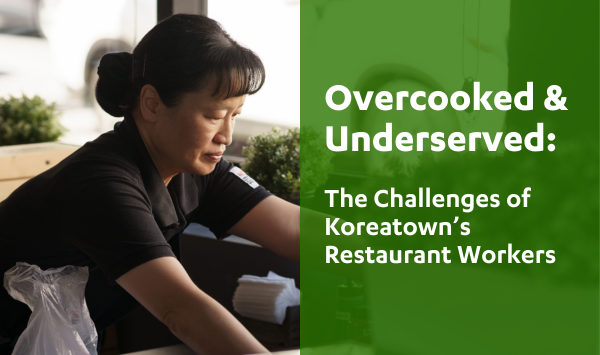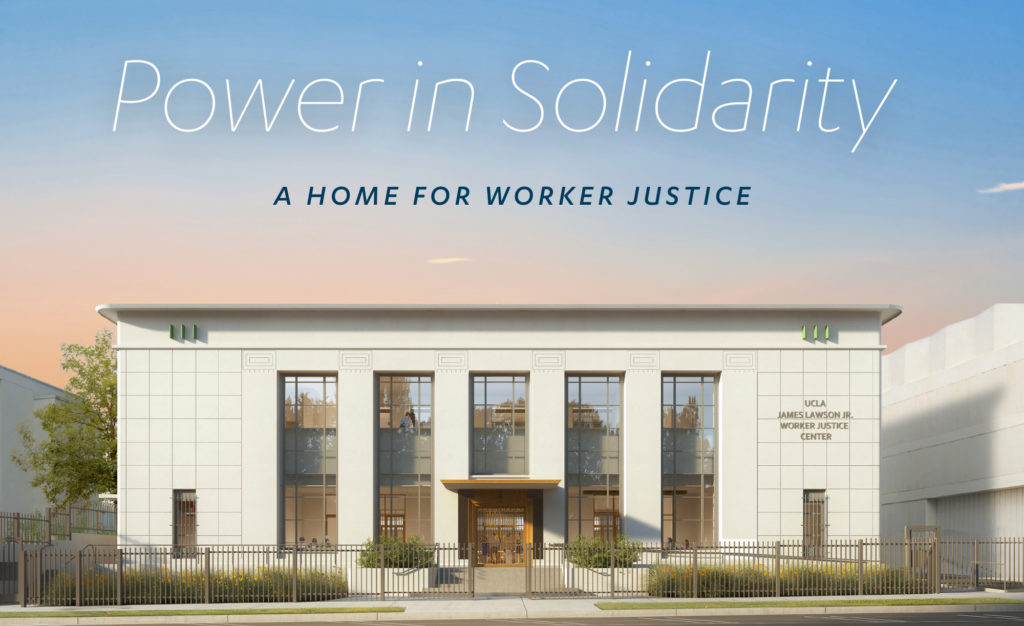Koreatown, Los Angeles, is a multiethnic enclave and globally known cultural and commercial hub in part because of its restaurant industry. With over 700 restaurants in roughly two square miles—many of which are full-service—Koreatown is also a booming nightlife and tourist destination.
The spine of the restaurant industry in Koreatown is its workforce, which is primarily composed of immigrants—documented and undocumented alike—from South Korea, Mexico, and Central America. Some workers in this field have arrived recently, while others have been working in the neighborhood for decades. This workforce largely resides in Koreatown, where there is an abundance of rental housing and, in particular, older housing stock that is rent-stabilized and relatively affordable. In this sense, Koreatown is a landing place for migrants seeking a new home in the city, and its restaurants are often a pathway into the workforce.
Overcooked & Underserved: The Challenges of Koreatown’s Restaurant Workers, published by the UCLA Labor Center and Koreatown Immigrant Workers Alliance (KIWA) in partnership with Cal Poly Pomona and San Diego State University, examines the labor and housing conditions of immigrant workers in Koreatown’s restaurants. The report is based on existing literature, policy reports, 338 worker surveys, 12 worker interviews, and an analysis of publicly available demographic, labor, and industry data.
Among other findings, the report notes:
- Koreatown’s restaurants and the workers that sustain them are a vibrant part of Los Angeles. Koreatown has a high density of restaurants compared to other neighborhoods in Los Angeles County, with 704 restaurants and eating places employing nearly 9,700 workers. Employment in larger establishments has accelerated, and the vast majority of restaurant workers in Koreatown are immigrants.
- Workers experience low wages and unfair wage practices. 72% of restaurant workers are full-time and 72% earn low wages. Restaurant workers experience unfair practices around tips, and they also face a wage ceiling.
- Koreatown residents face housing risks. Restaurant worker households are at, or near, poverty. They are also housing insecure. Almost half (46%) of Koreatown restaurant workers are burdened by rent, and those who are not tend to live in overcrowded conditions.
Authors recommend:
- Establishing an industry standards board to set and enforce minimum standards in Koreatown’s restaurant sector.
- Developing a Koreatown commercial corridor ordinance.
- Strengthening partnerships between worker centers and enforcement agencies.
- Expanding workplace public health councils programs.
- Integrating workplace justice into anti-displacement and homelessness prevention strategies.
Related Coverage:
LAist
La Opinión
The Korea Daily
The Chosun Ilbo
The Daily Bruin
ABC7



